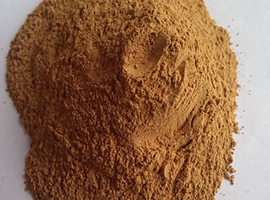- +91 99503 50544
- info@rmrglobal.co.in
Sodium Bentonite
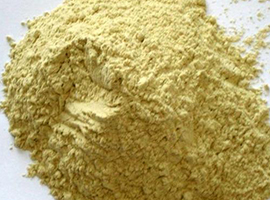
Bentonite is a widely distributed clay material, generated frequently from the alteration of volcanic ash, consisting predominantly of smectite minerals. It is the presence of smectite which imparts the desirable properties to bentonites, although associated factors such as the nature of the exchangeable cations in the interlayer also affect properties. Bentonites are typically classified as either sodium (swelling) or calcium (non-swelling) based on their interlayer exchangeable cations and ability to swell in water. Bentonite presents strong colloidal properties and its volume increases several times when coming into contact with water, creating a gelatinous and viscous fluid. It is known as “Mineral of 1000 uses”.
We supply high quality Bentonite in either milled (into powder and super fine powder form) or sieved (granular form) according to the end use. We have the expertise to
Properties :
• High viscosity
• High plasticity
• High Thixotropy
• Good water absorption
• Strong Colloidal properties
APPLICATIONS:
• Paper Industry
In the paper industry, it is used as a retention aid, pitch and stickies control agent, loop water treatment agent and to dewater sludge. It possess very high surface area with the cationic charge, which helps in dewatering, flocculation and adsorption. It also offers de-inking properties for paper recycling.
• Animal welfare
Bentonite is ideal for use in cat litter due to its unique water absorption, swelling, and odour controlling properties. It is an excellent anti-caking agent for animal feed.
• Foundry
It is used as a bonding material in the preparation of molding sand in iron and steel industries since it assimilates water very quickly to reach good strength in less time. It has high montmorillonite content and is a wet activated.
• Construction & Civil Engineering
Our bentonite, being thixotropic, used as lubricating agent in diaphragm walls and foundations, in tunnelling, in horizontal directional drilling and pipe jacking. Bentonite slurry walls are used in construction, where the slurry wall is a trench filled with a thick colloidal mixture of bentonite and water. Due to good viscosity and plasticity, it is used in Portland cement and mortars.
• Oil Well Drilling
Bentonite is used in vertical drilling fluids to increase viscosity and filtration control. This mineral is also ideal in drilling fluids because it expands when exposed to water. This expansion helps down whole formations to be sealed from invading drilling fluids. It also serves to cool and lubricate the drill bit as well as seals the drill hole against seepage and to prevent wall cave-ins. It is mainly use in fresh pure water rotary drilling conditions. as water.
• Iron Ore Palletization
Bentonite is used as a binding agent, improves great strength in the production of iron ore pellets. Its higher cation exchange capacitiy binds Iron Ore particles very tightly. Through this process, iron ore fines are converted into spherical pellets, suitable as feed material in blast furnaces for pig iron production, or in the production of direct reduction iron (DRI).
• Agriculture
We supply agricultural bentonite as it plays an important role in agricultural landscape. It is used as an additive to feed for farm animals as it compensate the deficit of minerals in the organism, activates metabolic processes and normalizes the processes of digestion preventing gastrointestinal diseases. It is used to ameliorate the physical and chemicals properties of soils to improve agricultural product. It can also be used as a porous ceramic carrier for various herbicides and pesticides. It is uniquely useful in the process of winemaking.
• Pharmaceuticals
Bentonite is used as filler in pharmaceuticals. Due to its large surface area, absorption/adsorption properties, it functions well in stabilizing emulsions and paste formation. Such applications include industrial protective creams, calamine lotion, wet compresses, and antiirritants for eczema. In medicine, bentonite is used as an antidote in heavy metal poisoning. Personal care products such as mud packs, sunburn paint, baby and facepowders, and face creams may all contain bentonite.
• Environmental markets
Increasing environmental concerns regarding wastewater treatment owing to high content of toxic and radioactive chemicals promotes bentonite market growth. Its properties are very useful for wastewater purification. Common environmental directives recommend low permeability soils, containing natural bentonite. as a sealing material in the construction and rehabilitation of landfills to ensure the protection of groundwater from the pollutants.
• Paints
It is a thickner agent, an additive to paints and coatings, generally used to modify viscosity of paints since it is eco-friendly and moe economical compared to other agents and thus improves their performance. Its adsorption properties are appreciated for the finishing of indigo dying cloth, and in dyes (lacquers for paints & wallpapers). A wide variety of bentonite paint options are available according to the preferences of customers.
• Ceramics
Bentonite binds particles together in ceramic bodies to make them stronger in the green or dry state. Its minute particles, acting as suspension agent, fill voids between others to produce a more dense mass with more points of contact. Adding bentonite to glazes also imparts better dry strength and a harder and more durable surface. Without bentonite , glaze particles will sink and settle, forming a hard, impossible-to-mix layer on the bottom of the bucket.
• Detergents
It has long been employed in soap and detergent products as a filler and bodying agent and it has been recognized in the detergent industry that fabrics are softened by the deposition of bentonite onto them from aqueous solutions of detergents. Liquid hand cleansers/soaps rely on the inclusion of bentonite to remove the impurities in solvents and to soften fabrics.
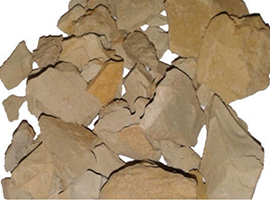
Bentonite Lumps
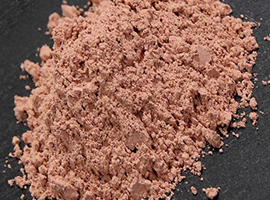
Calcium Bentonite Powder
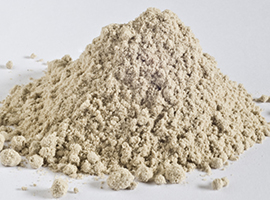
Marshmallow Root Powder - Original
